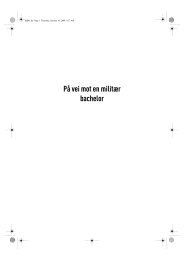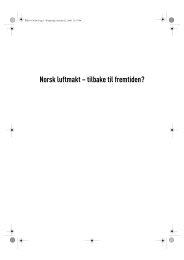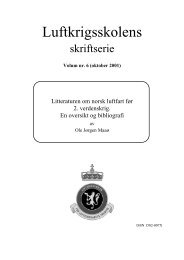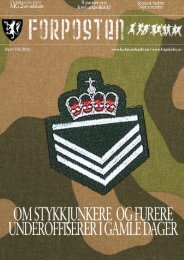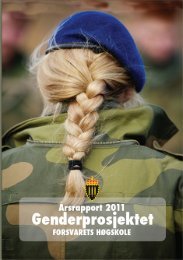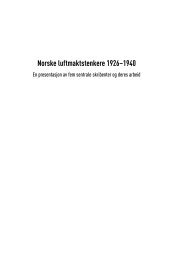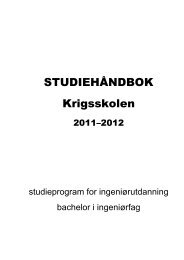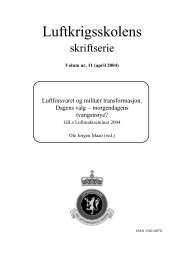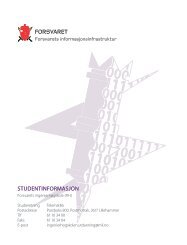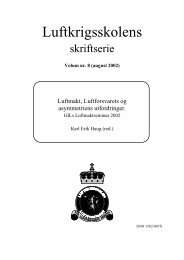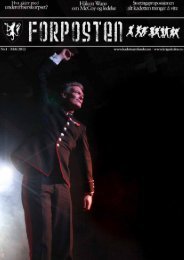Wilhelm Mohr
Wilhelm Mohr
Wilhelm Mohr
Create successful ePaper yourself
Turn your PDF publications into a flip-book with our unique Google optimized e-Paper software.
<strong>Wilhelm</strong> <strong>Mohr</strong>. On World War II<br />
– with the precondition of reversing the process should warnings from<br />
the continent come as a product of ’a foreseeable foreign policy’.<br />
There was a line of thinking throughout this period that the leadership<br />
of our Defence Forces lacked influence, and there was no desire<br />
that it should have any. For instance, the Defence Council, which had<br />
been established as part of the downsizing process, had been activated<br />
for the last time in 1937, and thereafter closed down. A joint Intelligence<br />
Service, an initiative from the Defence Forces to, among other<br />
things, enable strategic warning, received no support. There were voices<br />
against this political line, but no particular initiatives from any individual<br />
political party.<br />
It should be noted that with the responsibility of government, a desire<br />
to modify the Labour Party’s single-minded anti-military attitude<br />
gradually surfaced. Characteristically, this happened in the younger<br />
segments of the Party, who were less disposed to the fortified attitude<br />
that the military was the protective tool of the middle classes. However,<br />
with all the inherent political heritage involved, this was far from a<br />
light-hearted operation. With regard to Foreign Minister Koht’s statements<br />
in Parliament, while they could be clear and disquieting enough<br />
for action, he often added positives that were easy to focus on, and it<br />
is a very human characteristic to grasp a glimpse of the coming dawn,<br />
rather than acknowledge the gravity of an ever-creeping darkness. I will<br />
not pursue this issue any further, tempting though it undoubtedly may<br />
be. Quite simply, the Government felt it could master such situations<br />
that arose by political means alone. Thus, the crisis management was<br />
as it was, and war came.<br />
However, there are a couple of features from this time that I want<br />
to point out because they focus on what was said and not said under<br />
the particular circumstances or, worse still, were never even considered.<br />
Yet, I consider these features to be important. This is because it is<br />
strange to observe how little reaction the very visible growth of national<br />
socialist forces seemed to generate with our elected Members of Parliament<br />
at the time. It is true that voices of resentment and engagement<br />
had arisen within the population, particularly within radical movements,<br />
with regard to the civil war in Spain, for instance. However, in<br />
106



